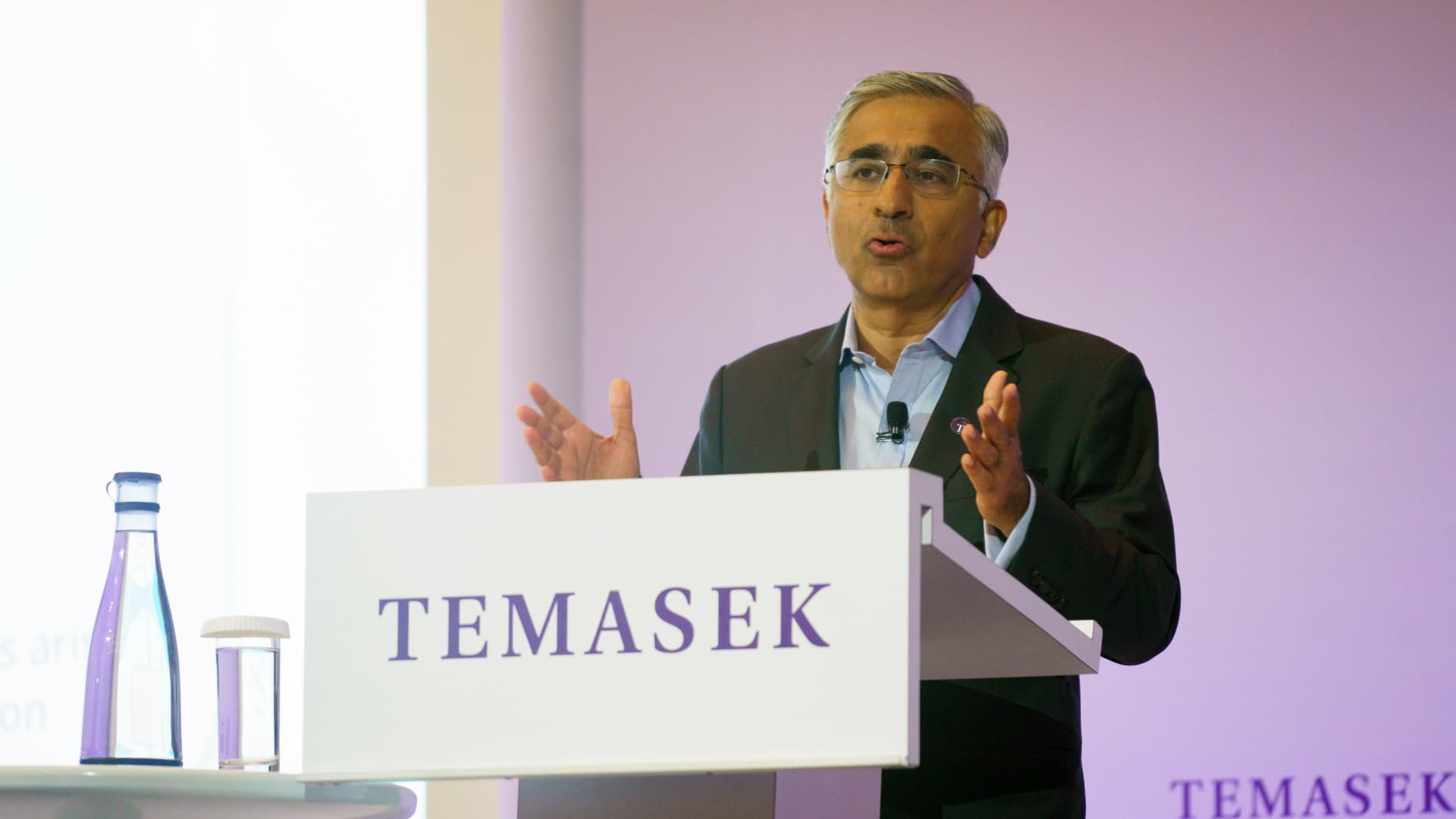Rohit Sipahimalani, chief investment officer of Temasek Holdings Pte, speaks during a news conference in Singapore, on Tuesday, July 11, 2023.
Ore Huiying | Bloomberg | Getty Images
Singapore’s sovereign wealth fund Temasek is not currently looking to invest in crypto companies amid regulatory uncertainty in the sector, its Chief Investment Officer Rohit Sipahimalani said.
“There’s a lot of regulatory uncertainty in this environment. And I do think that be very difficult for us to make another investment and exchange in the middle of all this regulatory uncertainty,” Sipahimalani told CNBC in a Tuesday interview.
The U.S. Securities and Exchange Commission charged top U.S. crypto exchange Ripple for breaching local securities laws by selling its native token XRP without first registering it with the regulator.
The SEC separately charged another U.S. crypto exchange Coinbase for operating as an unregistered securities exchange, a broker or a clearing firm. It also accused Coinbase of failing to register the offer and sale of its staking program — which allows customers to earn rewards for holding certain cryptocurrencies.
“If you have the right regulatory framework, and we are comfortable with it, and you have the right investment opportunity, there’s no reason for us to not to look at it,” Sipahimalani said.
“But as I said, at this point in time, we would not be comfortable investing in exchanges given the way things are right now.”
He added that Temasek never intended to invest in cryptocurrency.
“We’ve never been looking to invest in cryptocurrencies. Even the investment in FTX, we’ll be talking about investing in an exchange, which allowed us to get fee-based revenue without thinking [of] balance sheet risk or any trading risks,” said Sipahimalani.
On Tuesday, Temasek posted its worst returns since 2016, weighed by macroeconomic and geopolitical challenges.
FTX loss

“Firstly, you got to remember that the FTX investment was a part of our early-stage investment strategy, where we invest in new disruptive technologies to see what’s around the corner, so that we can bring that to our portfolio companies and benefit within our ecosystem,” said Sipahimalani.
“Secondly, we’re looking, obviously, for returns to these early-stage companies, but probably most importantly, we’re looking to find the next winners that we can double down on, as they break out. And many of them become ultimately a core part of our portfolio.”
He referred to companies like Alibaba and Meituan as such companies.
“We recognize investments at that level is binary and risky, and therefore we rely on diversification. We cap early-stage investments at 6% of our portfolio,” he added.
Temasek did the necessary due diligence for an early-stage investment when considering FTX, Sipahimalani said, and ultimately went ahead because FTX “had good technology was gaining market share, and showed a willingness to engage with regulators and be licensed.”
But ultimately, it is “very difficult to always uncover that due diligence,” said Sipahimalani.
“When we do early stage investing, that there will be some losses, some write-offs, but, importantly for us, the whole portfolio of early stage investments should do well.”
Correction: This story has been updated to accurately reflect that Rohit Sipahimalani is Temasek’s Chief Investment Officer.

